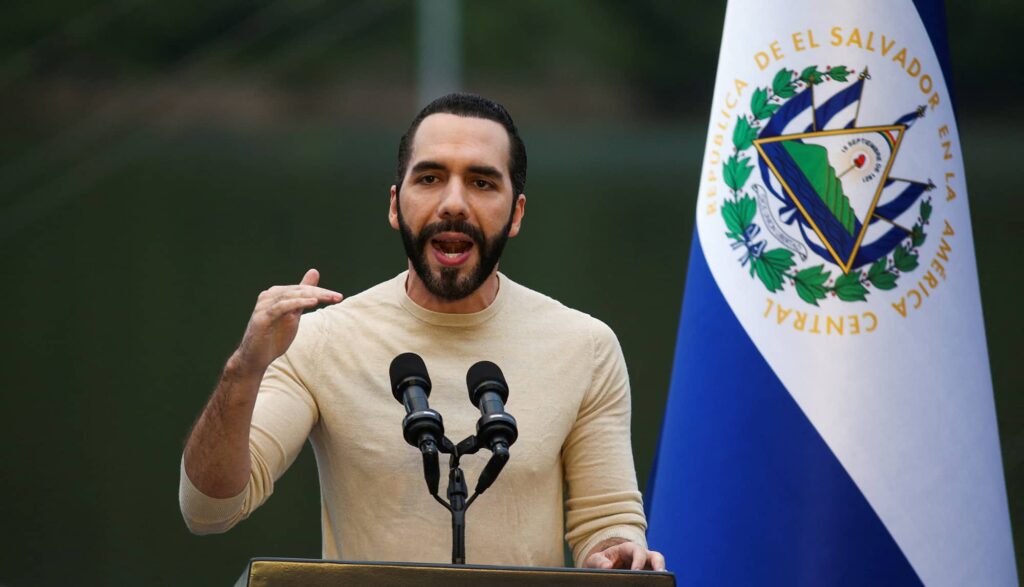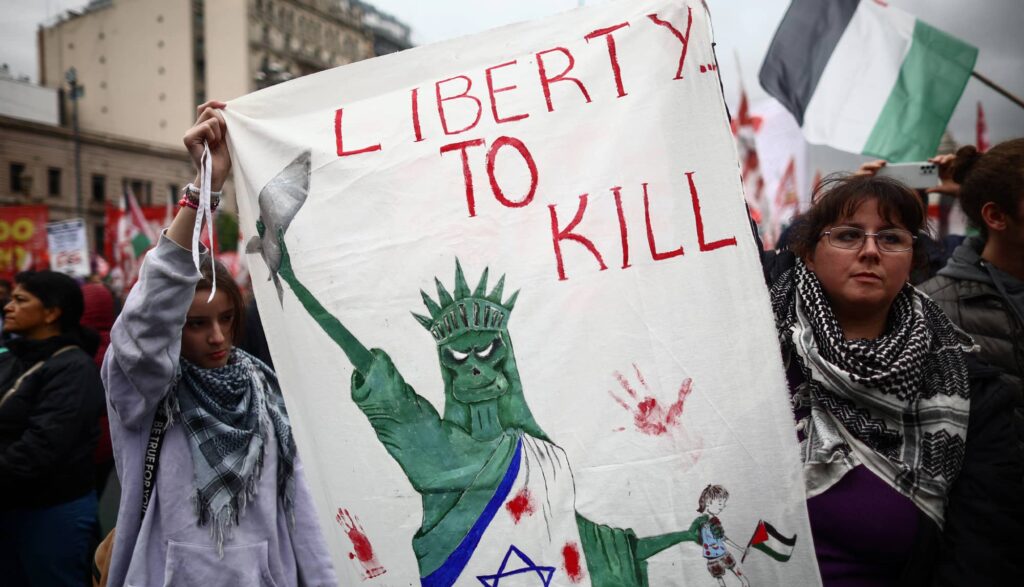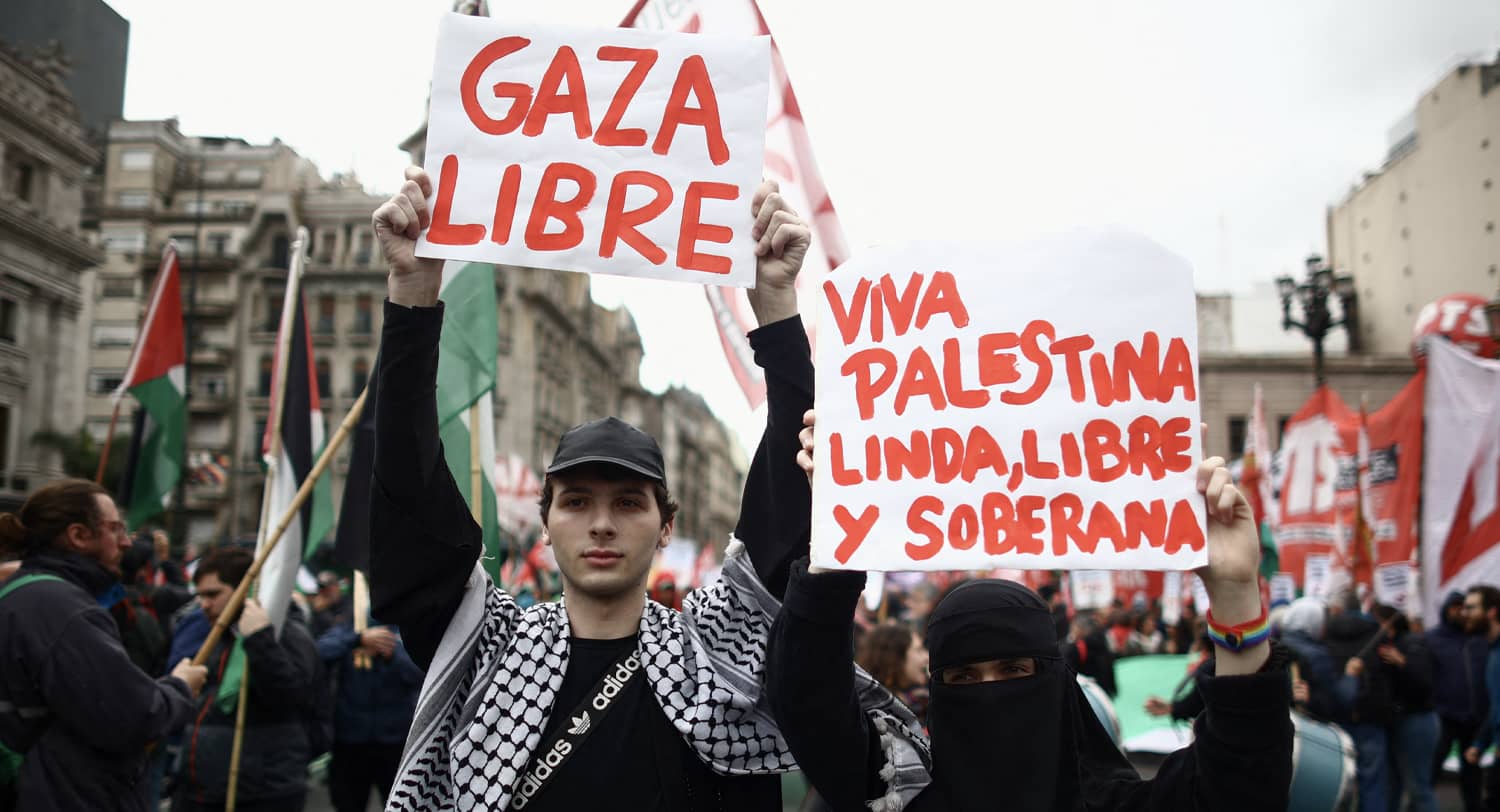In the days and weeks after the October 7 terrorist attack and Israeli military response, some Latin American nations have distanced themselves politically from Israel. While views of the conflict are evolving, the Latin American public’s reliance on social media for news reports, amid relentlessly negative images of suffering in Gaza, has contributed to widespread support for a cease-fire and the deterioration of Israel’s soft power in the region.
Regional governments’ decisions about their posture on the war reflect the domestic political clout of diasporas, as well as broader geopolitical factors in the Western Hemisphere such as Russian, Chinese, and Iranian influence, and the ever-complex legacy of the US power politics.
Public postures against Israel
In a seminal vote at the UN General Assembly calling for a cease-fire, out of 14 votes against the resolution, the US and Israel were joined only by Guatemala and Paraguay out of the 34 nations of Latin America and the Caribbean; three Latin American nations abstained (Haiti, Panama, and Uruguay.)
On October 31, Chile and Colombia recalled their ambassadors from Israel, and Honduras followed suit on November 3. Bolivia formally broke relations with Israel on October 31, accusing it of “crimes against humanity.” (Bolivia had re-established relations in 2020, after breaking them in 2009.) Mexico and Peru also made forceful statements on November 1 condemning Israel’s conduct of the war, while Argentina said “nothing justified” violations of international human rights law. The statements also condemned Hamas and called for the unconditional release of hostages, and for a humanitarian cease-fire. In the rotating presidency of the UN Security Council in October, Brazil had the pen on a cease-fire resolution that was vetoed by the United States. Caribbean nations issued a joint statement calling for an end to violence engendered by the ‘Hamas attacks and Israeli counter-attacks.’
The leftist presidents of Brazil and Colombia have gone even farther on social media, calling Israel’s actions a “genocide” against Palestinians. President Petro of Colombia has made the most one-sided and incendiary statements about Israel’s actions, refusing to completely condemn the Hamas attack and stating that the situation of Gaza and its occupants is equivalent to that of a concentration camp. Petro’s statements have been roundly criticized by Colombians, beyond his normal internal opposition. In response, Israel’s foreign ministry announced a suspension of defense sales to Colombia, disrupting what had been a strong military partnership between the two nations.The next day Petro tried to make partial amends by being photographed meeting separately with the ambassadors of Palestine and Israel. This was followed, however, by the ambassadorial recall.
Some Latin America and Caribbean countries had no one to recall; Venezuela, Cuba, and Nicaragua, traditionally close to both Russia and China, have no embassies in Israel. All three nations hosted Iranian President Ebrahim Raisi in June 2023.
President Alberto Fernández of Argentina ordered security upgrades for Jewish institutions in the country following October 7. (Note: In 1994, a suicide car bomber blew up the Buenos Aires Jewish community center Asociación Mutual Israelita Argentina (AMIA), killing 87 and wounding over 100. Until the October 7 attack by Hamas, the AMIA bombing was the largest antisemitic attack in the world since the Holocaust. Evidence indicates Iranian-backed Hizbullah was behind this attack, though no arrests were made in Argentina.

Striking a balance
Chile has the largest Palestinian diaspora outside the Middle East, with an estimated 500,000 people. Other notable Palestinian populations are in Central America, Mexico, and Brazil. These diasporas reflect various groups who left the Middle East, the earliest of whom were mainly Christians in the 19th century in search of economic opportunity or fleeing sectarian conflict, with later waves mainly stemming from displacement after 1948.
The diaspora of Jews in Latin America is tiny – less than .1 % of the total population – with equally limited political influence. But Israel has friends in Latin America and the Caribbean and some measure of popular support. In 2017 Netanyahu became the first Israeli Prime Minister to visit the region. While the pro-Palestinian rhetoric from key Latin American nations has gotten attention, serving as a convenient way for governments to play directly to their political base, almost all these nations condemned Hamas for its terrorist acts and Argentina has publicly mourned its more than two dozen citizens killed or kidnapped in the attack. In Brazil, immediately after October 7, the flag of Israel was laser projected over the National Congress.
There are a variety of reasons for this reservoir of Israeli soft power. Some nations friendly to Israel reflect their own conservative and increasingly Christian evangelical voter base, likely a key factor in Guatemala’s outlier support for Israel at the General Assembly. Reflecting the region’s fight against transnational crime, El Salvador President Nayib Bukele, of Palestinian ancestry, unequivocally condemned Hamas leaders and militants as “savage beasts [who] do not represent the Palestinians,” comparing them to the deadly street gangs in El Salvador against whom he continues to use authoritarian tactics.

Does Latin America Even Care?
The war in Gaza does not command sustained attention among the populations in Latin America and the Caribbean as it does in Europe, the Middle East, and North America. Reflecting distrust of mainstream media and their own governments, citizens have mainly followed events on social media, which by its high quotient of emotional coverage – and what may include deliberate manipulation – lends support to calls for a cease-fire and an end to civilian deaths in Gaza.
The prominent role of the United States as its supporter doesn’t help Israel in this case, given the history of US power politics in the Western Hemisphere and a region accustomed to questioning American motives. As a Brazilian analyst writes in Foreign Policy, Latin Americans do not see themselves immediately impacted by the Gaza conflict “but they appear determined to take a stand on what many see as violations of international law. In doing so, they and other countries in the global south are also casting skepticism on U.S. claims to be the defender of the rules-based international order,” a system which historically weak nations in the Western Hemisphere watch closely.
National leaders in Latin America and the Caribbean, through conviction, domestic expediency, or geopolitics, are likely to continue denouncing Israel’s efforts and US support as long as disturbing images from Gaza fill the internet. Israel’s efforts to promote its soft power in this region have produced only a limited reservoir of trust.
Ambassadorial recalls and public statements are diplomatic tactics which make headlines without actually disrupting relations. With enough will, and over time, diplomatic fights are fixable and soft power can regenerate. But where deep hostility takes hold, as seems to be the case with some of the left-wing governments in Latin America, the damage done will not be easy to repair.



